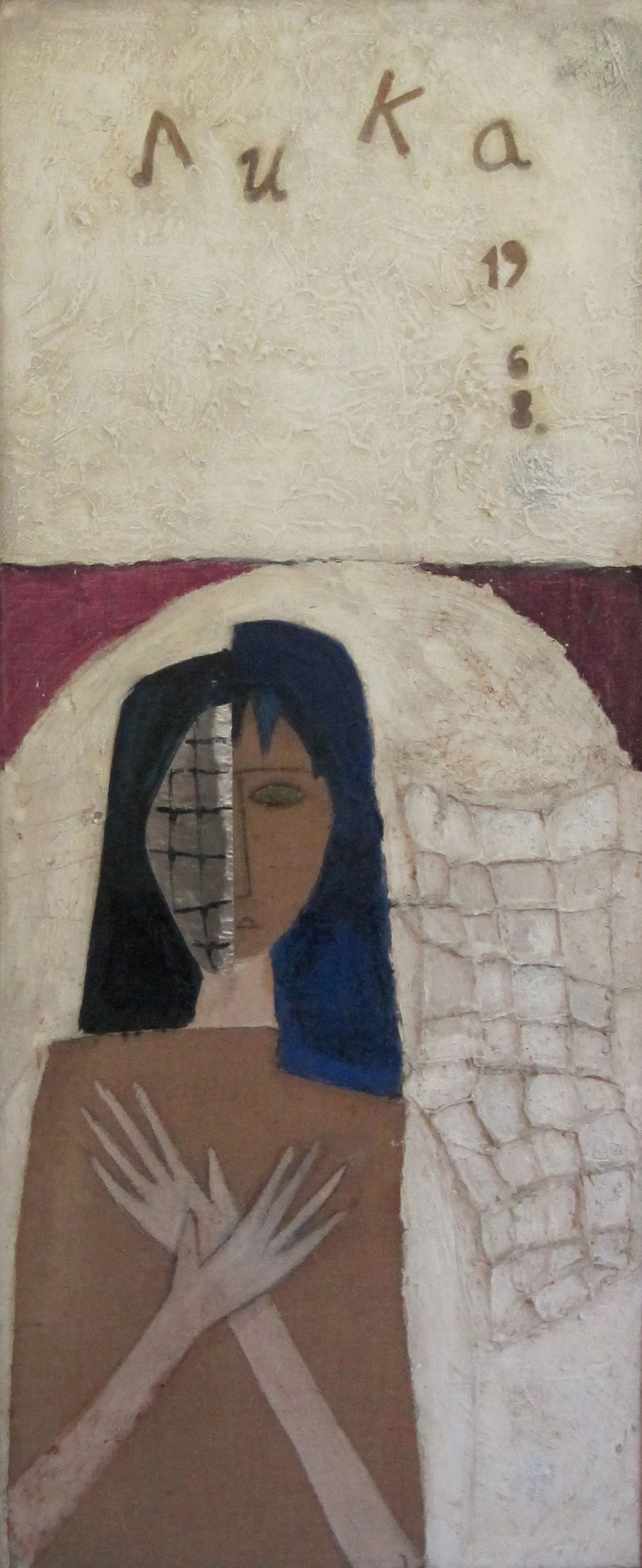Lika Yanko was a Bulgarian painter, daughter of Albanian immigrants. She studied at the French College in Sofia. In 1946, Lika Yanko enrolled in the State Academy of Arts studying painting in the classes of Prof. Dechko Uzunov and Prof. Iliya Petrov but she was not allowed to do a diploma work. Her first independent exhibition in 1967 in Sofia was closed down prematurely. Lika Yanko continued to draw, choosing isolation and refusing to take part in art exhibitions and to be dependent on juries determining the limits of the permissible. Until 1981 when she received an invitation for exhibition by Lyudmila Zhivkova, her paintings had never been exhibited publicly. She managed to subsist due to the redemption of her paintings by foreign embassies and diplomats. Since those were "unauthorized contacts", Lika Yanko was under constant surveillance, observed and eavesdropped by the structures of the State Security; however, her record was destroyed.
At the beginning of her career, Lika Yanko drew landscapes, portraits, figured compositions. After the closing of her exhibition, she completely laid aside any restrictions in her painting. In the 1960s, Lika relinquished the landscapes and embraced the mythopoetic composition: she stylized the forms, shortened the spatial plans and distanced herself more and more from the principles of nature-resemblance defended by the authorities. Her self-portrait of 1968 shows a face half-covered by bars, a symbol of interdiction. Her paintings of the 1970s are dominated by themes from Christianity seen through the eyes of the author. Lika Yanko used the rope as a contour, incrusted beads, buttons, nuts, splinters, and pebbles interweaving astrology, Christianity, reflections on eternity and the initial things.
In the course of her entire life, Yanko had only 7 exhibitions; she died (of pneumonia) only a few days after the opening of the last one at the Cavalet Gallery in the city of Varna. While still living, Lika Yanko presented the National and the Sofia City Art Gallery with paintings.
In the absence of an organized rebellion which was present even among the Soviet artists, the most common form of resistance in Bulgaria, according to Iliev, was the self-isolation. Lika Yanko was an example of such type of opposition to the regime.
In 1989, Lika Yanko received the Sofia Award.

